When my dad is home from England, he stays in the Horse and Jockey just outside Cashel in Co Tipperary. A central location convenient for those on business but still a safe haven for a Premier county man. Aside from sitting with him, in a bar strewn with racing memorabilia, I have also organised and attended many events in the hotel. So I was pretty confident that I knew the “Jockey”. But not so, I discovered.
Although the Gift Horse Gallery store has been a draw for anyone in need of a special gift and the hotel expansion is ongoing since 2002, the owners – the Egan family – added a fantastic spa, gym, an indoor pool in 2009. Although fully utilisng all of these great amenities on our stay, we were not focused on the leisure activities, we were focused on the food.
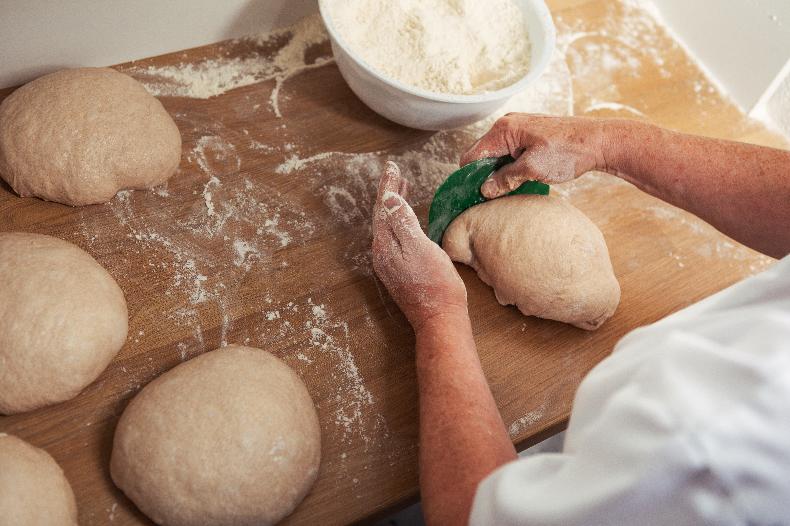
The Horse and Jockey is well known for its baked goods.
When my friend visits, I am always excited as I know that she will be passing the Jockey and will bring a cake with a fresh lemon curd centre topped with lemon water icing. And according to pastry chef Jacqueline Lanigan Ryan who we sat down with on our visit, “it’s our big seller”. Although Jacqueline is working in the Jockey since the café and bakery kicked off in 2007, sourdough bread is the latest attraction that she has perfected. And as anyone who has tried it over lockdown will attest, that is a labour of love.
Sour ferment
She explains: “It’s a fermentation process, the same as making anything that involves fermentation like sauerkraut or alcohol. 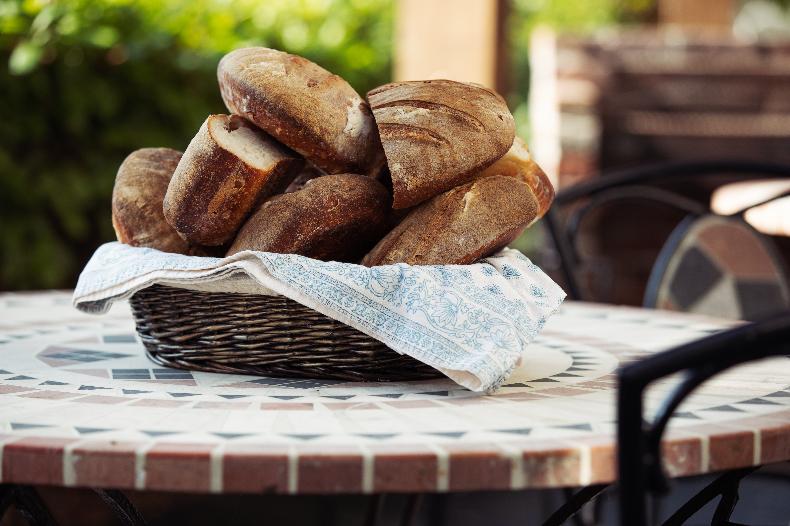
The bacteria works on the product causing bubbly fermentation that gives you carbon dioxide. It’s the carbon dioxide that rises your bread. Flour, water and salt only –they’re the only three ingredients in a sourdough.
“Put flour and water into a glass jar and leave it open to the air. There is some yeast in your flour, there’s yeast on your hands, there’s yeast in the air. The flour and water begin to collect that yeast and it begins to work on your flour. You can’t use it those first couple of days but once you have your starter, you can start to make your bread.”
One of the reasons it’s so popular, she explains, is because it’s much more easily digested. Why we ask?
“Because the bacteria have done so much work on the flour before you eat it, the gluten is already broken down to some extent. Some people with gluten intolerances – not those allergic or coeliac – have found that they can eat sourdough for that reason.
Afternoon tea
The hotel adapted well to the COVID-19 restrictions utilising their spacious lobby areas and private dining rooms and moving to table service only and bookings for dinner. And it’s working well with a lively atmosphere evident despite the necessary precautions. 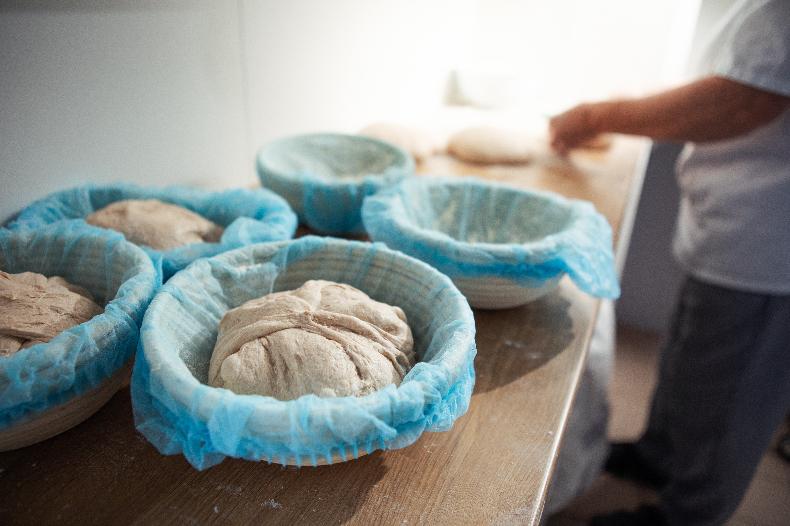
Post sourdough and dinner sampling, we agreed the afternoon tea (€21pp or €14 per child) is not bested by other hotels Irish Country Living has visited. Seven sweet items and seven individual items all baked on the day.
Jacqueline is clear on what she wants for their guests “there’s a lot of palaver about how it looks [in other places], but not a whole lot of substance when you go to eat it. That’s my principle here - what it’s like to eat.”
COVID-19 and sourdough will be interlinked in our minds forever so we have to ask the chef the question – what’s so special about it?
“It would be my first choice personally. It would soak up every ounce of dressing, but doesn’t disintegrate so you get this fabulous big wet spongy bread but not soggy if that makes sense. I think it’s the chewy crust that appeals to me. Fabulous toasted and you will get five days out of your loaf.”
Fethard Horse Country Museum
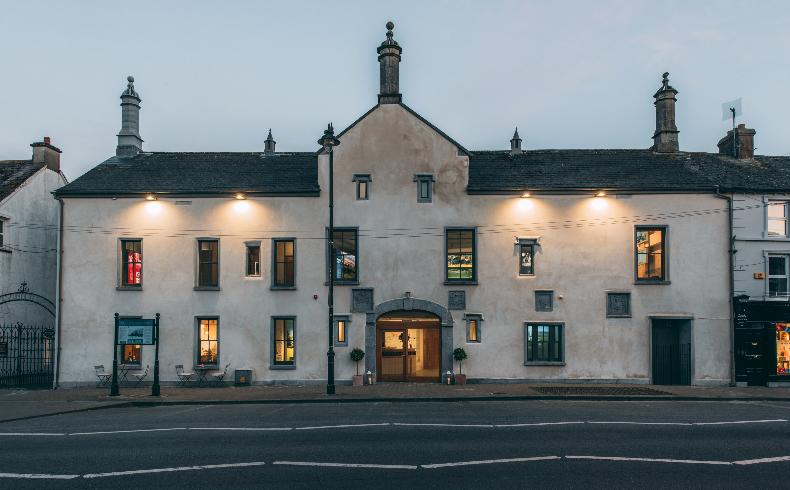
Fethard Horse Country Museum.
Although not leaving the comfort of the hotel is a tempting proposition, there is much to do in the area. With a horse-mad seven-year-old, we ventured the 25 minutes down the road to the Fethard Horse Country Museum. A veritable treat for those of us who have missed the day’s racing this year.
The museum is not only a showcase of the history of the horse but also pays respectful homage to the families, and farming families, of the area. Although ultra-modern with interactive touch screens and live imagery, the highlight is a physical one.
This highlight; is also what elicited the sole complaint of our visit from the five-year-old: “I thought that there would be more horse skeletons.” Little appreciation for the legend she was standing beside – the iconic Sadlers Wells.
Tickets pirces: adult, €7.50; child €3.50; children under six go free.
Mitchelstown caves
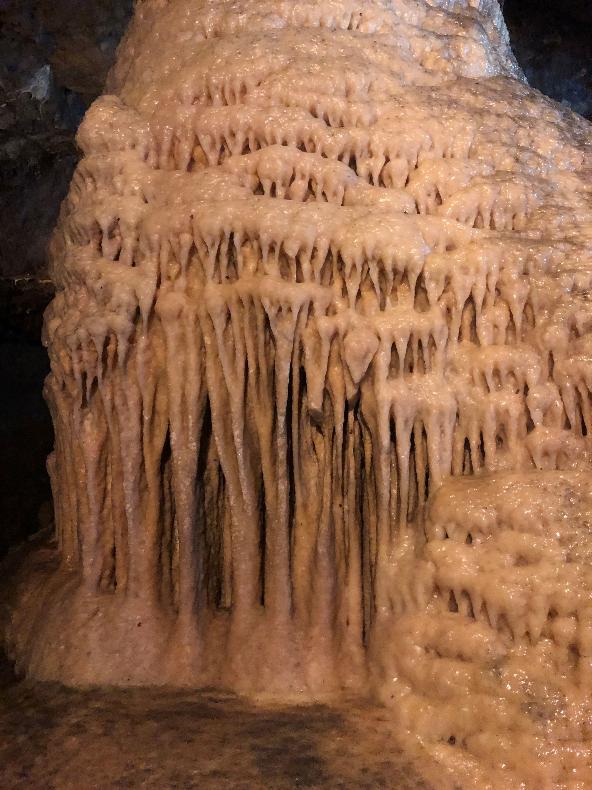
Mitchelstown Caves.
Thirty minutes towards Cork, although still very much in Tipperary, will bring you to Mitchelstown Caves. Well worth a visit, the caves are one of the largest in Ireland. A full guided tour takes you deep underground to the Tower of Babel, one of Europe’s finest columns which stands at nine meters high. Over the years the caves have been transformed into a movie set, a pop-up cinema and a restaurant. COVID-19 safety protocols include mandatory masks and reduced capacity tours. Note of caution, they turn off all the lights so that you can understand and experience why there is no animals or plant life in the cave. So as not to spoil this experience (for everyone) probably best not to wear your flashing runners – five-year-old Dia McKeever strikes again.
Read more
Staycationing in the midst of the hidden heartlands
My perfect staycation: Ann Dunne, White Gables Restaurant
When my dad is home from England, he stays in the Horse and Jockey just outside Cashel in Co Tipperary. A central location convenient for those on business but still a safe haven for a Premier county man. Aside from sitting with him, in a bar strewn with racing memorabilia, I have also organised and attended many events in the hotel. So I was pretty confident that I knew the “Jockey”. But not so, I discovered.
Although the Gift Horse Gallery store has been a draw for anyone in need of a special gift and the hotel expansion is ongoing since 2002, the owners – the Egan family – added a fantastic spa, gym, an indoor pool in 2009. Although fully utilisng all of these great amenities on our stay, we were not focused on the leisure activities, we were focused on the food.

The Horse and Jockey is well known for its baked goods.
When my friend visits, I am always excited as I know that she will be passing the Jockey and will bring a cake with a fresh lemon curd centre topped with lemon water icing. And according to pastry chef Jacqueline Lanigan Ryan who we sat down with on our visit, “it’s our big seller”. Although Jacqueline is working in the Jockey since the café and bakery kicked off in 2007, sourdough bread is the latest attraction that she has perfected. And as anyone who has tried it over lockdown will attest, that is a labour of love.
Sour ferment
She explains: “It’s a fermentation process, the same as making anything that involves fermentation like sauerkraut or alcohol. 
The bacteria works on the product causing bubbly fermentation that gives you carbon dioxide. It’s the carbon dioxide that rises your bread. Flour, water and salt only –they’re the only three ingredients in a sourdough.
“Put flour and water into a glass jar and leave it open to the air. There is some yeast in your flour, there’s yeast on your hands, there’s yeast in the air. The flour and water begin to collect that yeast and it begins to work on your flour. You can’t use it those first couple of days but once you have your starter, you can start to make your bread.”
One of the reasons it’s so popular, she explains, is because it’s much more easily digested. Why we ask?
“Because the bacteria have done so much work on the flour before you eat it, the gluten is already broken down to some extent. Some people with gluten intolerances – not those allergic or coeliac – have found that they can eat sourdough for that reason.
Afternoon tea
The hotel adapted well to the COVID-19 restrictions utilising their spacious lobby areas and private dining rooms and moving to table service only and bookings for dinner. And it’s working well with a lively atmosphere evident despite the necessary precautions. 
Post sourdough and dinner sampling, we agreed the afternoon tea (€21pp or €14 per child) is not bested by other hotels Irish Country Living has visited. Seven sweet items and seven individual items all baked on the day.
Jacqueline is clear on what she wants for their guests “there’s a lot of palaver about how it looks [in other places], but not a whole lot of substance when you go to eat it. That’s my principle here - what it’s like to eat.”
COVID-19 and sourdough will be interlinked in our minds forever so we have to ask the chef the question – what’s so special about it?
“It would be my first choice personally. It would soak up every ounce of dressing, but doesn’t disintegrate so you get this fabulous big wet spongy bread but not soggy if that makes sense. I think it’s the chewy crust that appeals to me. Fabulous toasted and you will get five days out of your loaf.”
Fethard Horse Country Museum

Fethard Horse Country Museum.
Although not leaving the comfort of the hotel is a tempting proposition, there is much to do in the area. With a horse-mad seven-year-old, we ventured the 25 minutes down the road to the Fethard Horse Country Museum. A veritable treat for those of us who have missed the day’s racing this year.
The museum is not only a showcase of the history of the horse but also pays respectful homage to the families, and farming families, of the area. Although ultra-modern with interactive touch screens and live imagery, the highlight is a physical one.
This highlight; is also what elicited the sole complaint of our visit from the five-year-old: “I thought that there would be more horse skeletons.” Little appreciation for the legend she was standing beside – the iconic Sadlers Wells.
Tickets pirces: adult, €7.50; child €3.50; children under six go free.
Mitchelstown caves

Mitchelstown Caves.
Thirty minutes towards Cork, although still very much in Tipperary, will bring you to Mitchelstown Caves. Well worth a visit, the caves are one of the largest in Ireland. A full guided tour takes you deep underground to the Tower of Babel, one of Europe’s finest columns which stands at nine meters high. Over the years the caves have been transformed into a movie set, a pop-up cinema and a restaurant. COVID-19 safety protocols include mandatory masks and reduced capacity tours. Note of caution, they turn off all the lights so that you can understand and experience why there is no animals or plant life in the cave. So as not to spoil this experience (for everyone) probably best not to wear your flashing runners – five-year-old Dia McKeever strikes again.
Read more
Staycationing in the midst of the hidden heartlands
My perfect staycation: Ann Dunne, White Gables Restaurant








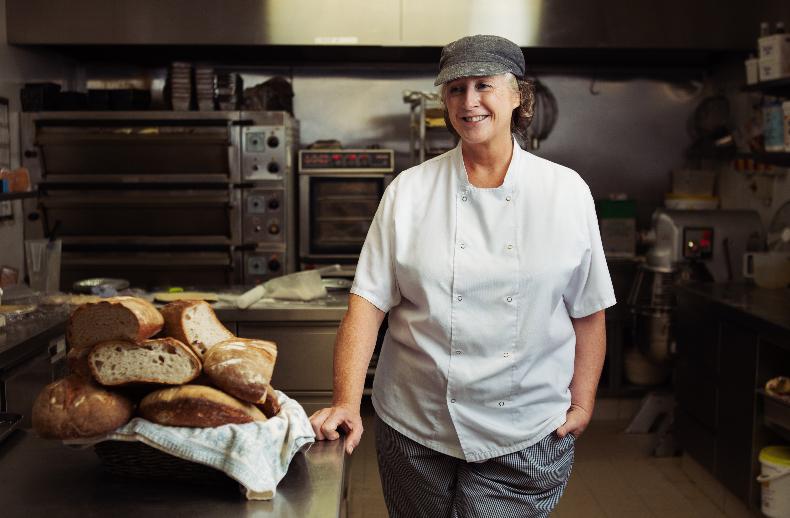

SHARING OPTIONS